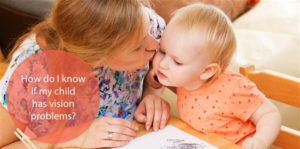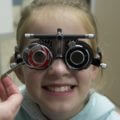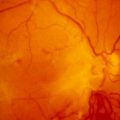
Having your child’s vision formally checked at regular intervals throughout their childhood is an important part of their routine preventative health care. Without a formal vision test by a qualified and experienced paediatric eye health professional, it can be impossible to know if your child has a problem with his or her vision. Children with reduced vision have nothing to compare their vision against (so often won’t complain of reduced vision, even if they have learned to talk) and will compensate for and find ways to manage with the vision they do have. Also, if one eye sees well and the other sees poorly, children will rely on the good vision coming from their better eye, ignoring their worse eye. Often it’s only when the child is school-aged and able to communicate well that they make reference to their ‘good eye’ and their ‘bad eye’, sometimes whilst covering one eye during a peek-a-boo game or playing dress-up with a pirate patch.
It is crucial that vision problems in children are diagnosed early because early diagnosis and treatment maximises the chance of your child having an excellent visual outcome. Delayed diagnosis and treatment may result in poor vision for life. In NSW, we are lucky to have the StEPS Vision Screening Program, where the vision of each and every four-year-old pre-school child is checked by a qualified orthoptist. If the child’s vision is abnormal, they will be referred for secondary screening or to a paediatric ophthalmologist for a comprehensive assessment. Frequently and understandably, parents are surprised by, and sometimes disbelieving of, an abnormal result because their child doesn’t seem to have any vision problems. It is ONLY through formal testing that a vision problem can be diagnosed in a young child.
There are, however, some signs in children that should prompt a review of your child’s vision, if noticed. These include squinting (screwing up their face or eyes when looking at an object of interest); exaggerated blinking; holding an object very close to the face; disinterest in books or drawing; rubbing the eyes; complaining of sore, or red eyes; adopting a particular head posture to see objects of interest; misalignment of the eyes (for example, an eye that turns inwards or outwards relative to the other eye); or nystagmus (shaking of the eyes or the appearance of rapid sidewards movements of the eyes).
In the absence of any concerns, we recommend a check every two years.
This article was originally published on the Royal Australian and New Zealand College of Ophthalmologists (RANZCO) website.


